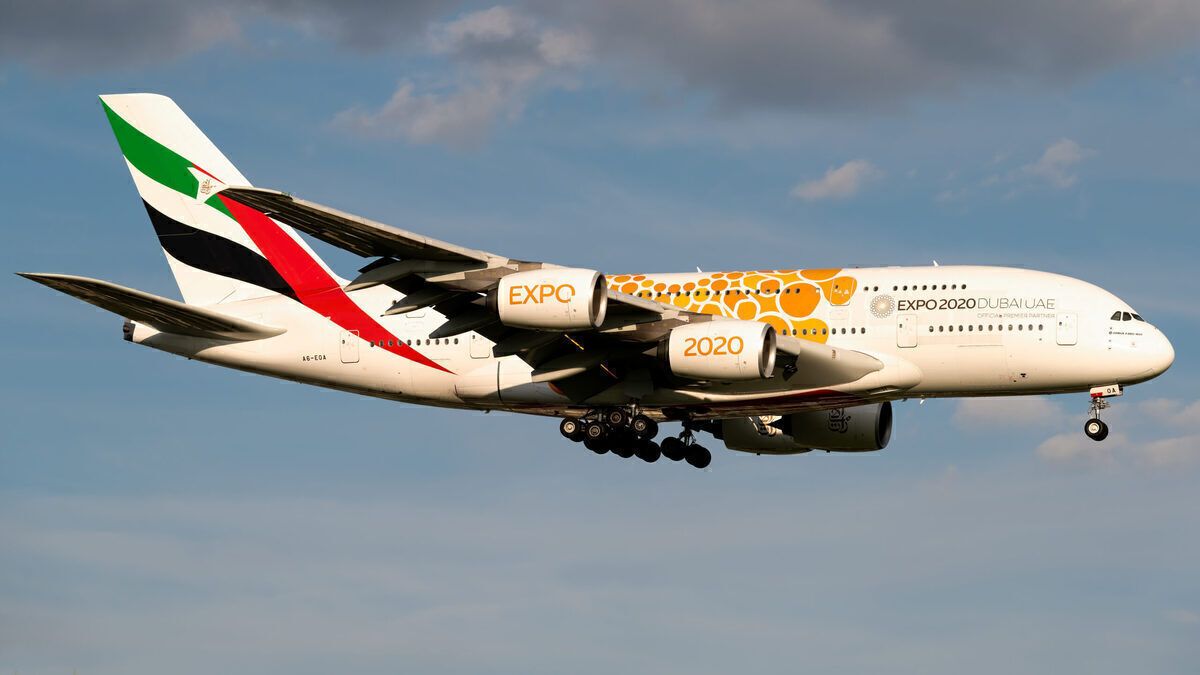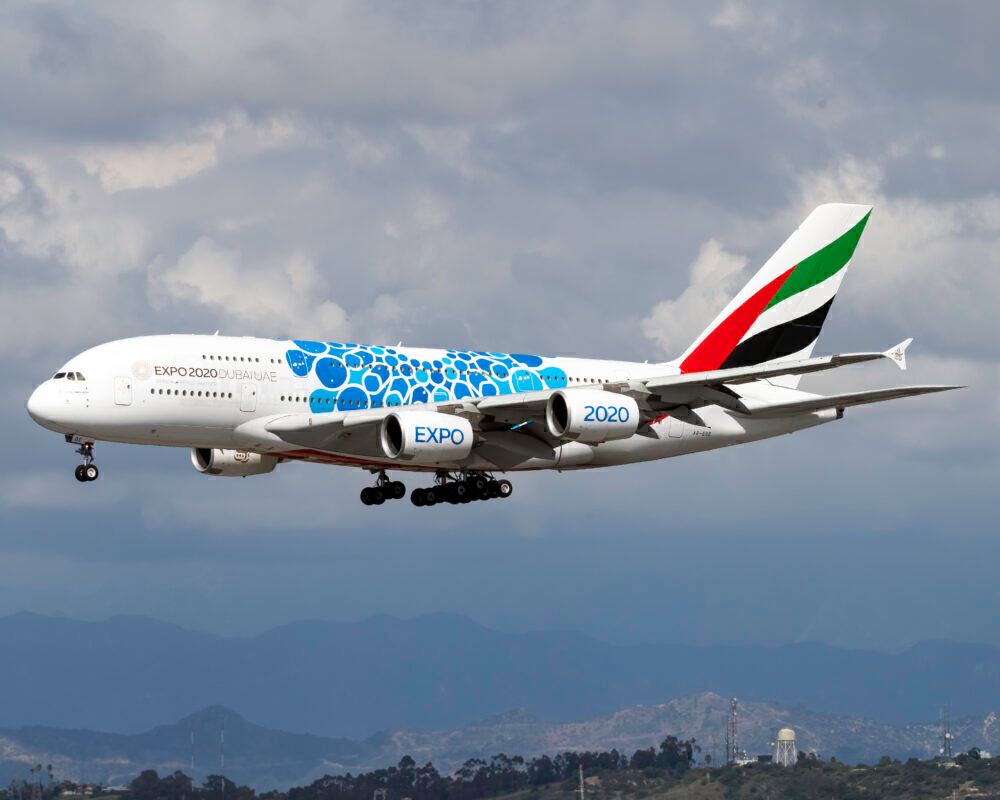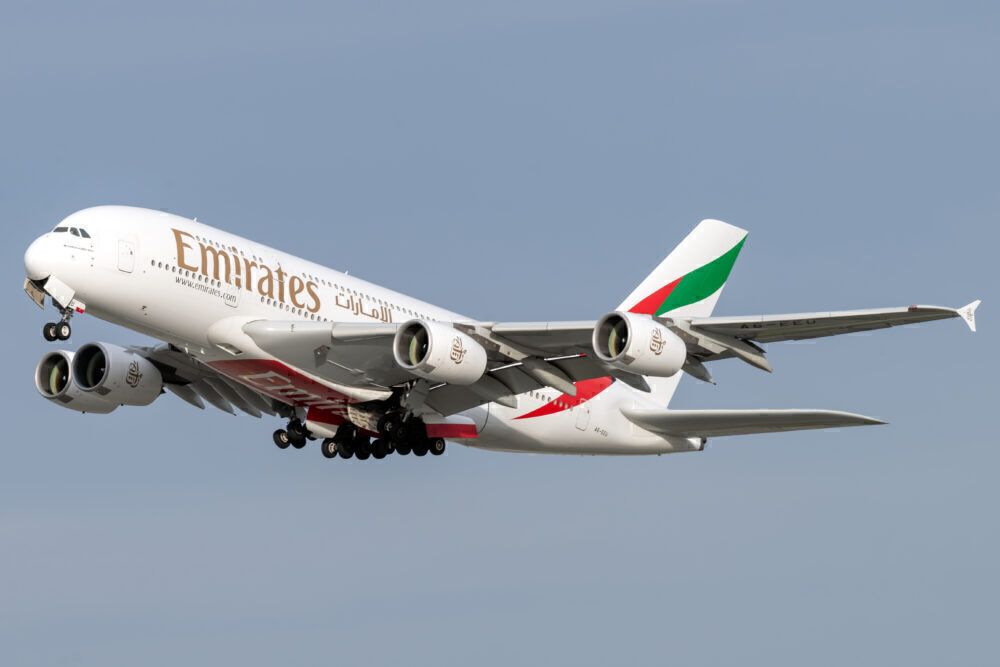Emirates is still very committed to the A380, but just like any other aircraft model, some fleet refreshment is required. The airline had hoped to have its hands on its first 777X by now, and as such, had earmarked some of the older A380s for retirement. Speaking exclusively to Simple Flying, Emirates’ President Sir Tim Clark said that the lack of visibility on the 777X arrival is delaying the retirement of some A380s and causing the company to feel ‘vexed.’
No visibility on the 777X program
Emirates’ President Sir Tim Clark has not been one to mince his words when it comes to his anguish with Boeing. Having slammed the company for production problems on the 787 line, his main issue now is the 777X program, and specifically when Emirates will see its first delivery. Speaking exclusively to Simple Flying, Clark said,
“The main concern of ours, of course, is where are we on the 777 programme, because we should have had the first one in June of last year. And so far, we don't have any visibility as to when the first one will arrive.”
While airlines are always keen to get their hands on new and more efficient aircraft in line with their original delivery schedule, for big airlines like Emirates, delays like this have a more acute effect on forward planning. Clark pointed out that conversations in Dubai are already well ahead of COVID, and are looking years into the future. Therein lies the problem,
“This of course, is affecting all our plans … We're thinking now, back end of this year through to the end of the decade, and where our network is going to be what our fleet is going to look like, what type of aircraft, how many, etc. Now, not being able to factor in the 777-9, or -8 at this stage is a little bit of a problem.”
Had the 777X been on schedule, Clark would have had at least a handful in his fleet already. He would also have had a roadmap for the deliveries of future aircraft to the airline, which would have set other wheels in motion in regard to both network planning and aircraft retirements.
Stay informed: Sign up for our daily and weekly aviation news digests.
A380s are waiting for retirement
The Airbus A380 has been a huge part of Emirates’ fleet, but just like any other aircraft, it has a lifespan. Emirates is proud of its status as a young airline, and was mobilizing to start retiring some of the older members of the A380 family as the 777-9s arrived. Clark commented,
“I'm a huge fan of the 380 … It will figure in the Emirates fleet for the next 15 years, let's be quite clear about that … But of course, when the 777-9 came along, we were able to start growing the capacity and growing the network as well as taking some of the older 380s out because they were obviously coming up the retirement age. All that has been shifted to the right, but we actually don't know by how much at this stage, which is vexing us a little bit in terms of cash management etc.”
Emirates has, to date, retired only one Airbus A380. A6-EDB left the fleet in February 2020 at the healthy age of 12 years old. Now, she sits at Tarbes-Lourdes awaiting scrappage or repurposing. But she was not the oldest A380 in the Emirates fleet.
Of the 117 A380s currently under the ownership of the Dubai airline, 20 are over or approaching 10 years of age. Four are 13 years old or over, while one – A6-EDF – is more than 15 years old. Emirates is keen to keep its overall fleet age down. While the arrival of younger members of the A380 fleet maintains its status as a young fleet, averaging 6.8 years, the airline isn’t keen to keep flying old aircraft for any longer than it has to.
With little visibility on the 777X delivery schedule, Emirates has no choice but to keep maintaining these older A380s for the time being. With an ambition to fly 100% of the fleet by the end of the year, even the oldest family members will need to be brought back into service for some time yet.



